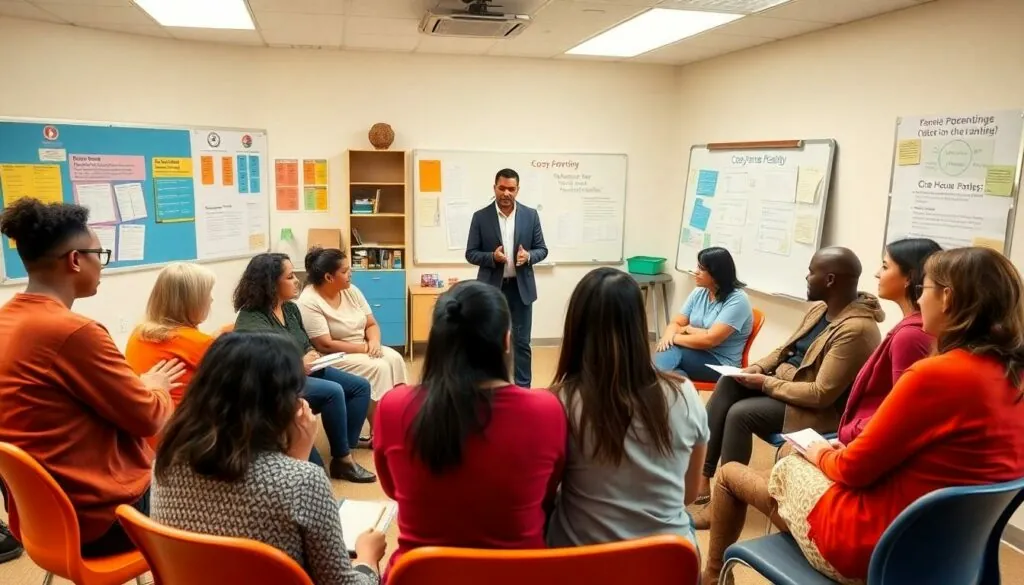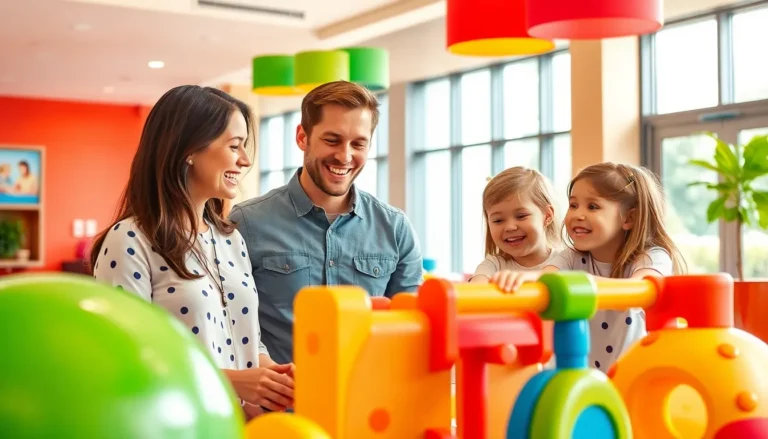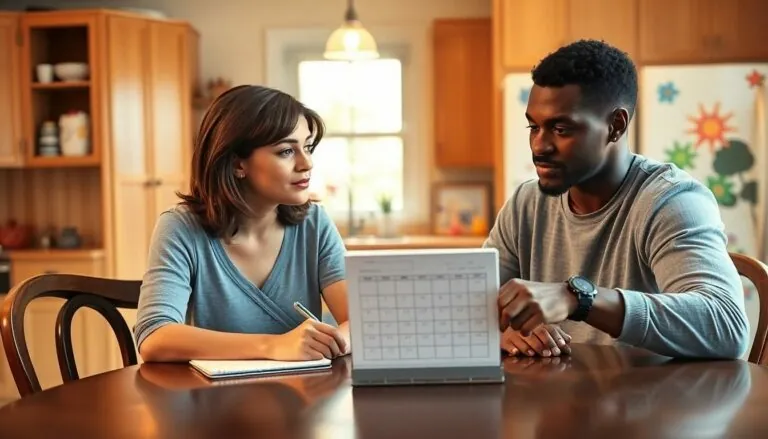Table of Contents
ToggleDivorce can feel like a never-ending rollercoaster ride, but there’s a light at the end of the tunnel—parenting classes. These classes aren’t just a formality; they’re designed to help parents navigate the choppy waters of co-parenting while keeping their sanity intact. But just how long do these classes last?
Overview Of Parenting Classes For Divorce
Parenting classes for divorce focus on equipping parents with the skills needed for effective co-parenting. Structurally, these classes vary in length but typically last from four to six weeks. Sessions often involve weekly meetings, allowing for regular interaction and discussion options among participants.
Topics covered include communication techniques, conflict resolution, and emotional support for children. Many programs emphasize the importance of understanding child development, which offers insights on how to meet children’s needs during transition periods.
Benefits include improved co-parenting relationships and enhanced parenting skills. Classes often provide tools that help parents make informed decisions about their children’s welfare.
Duration can differ based on local requirements or specific court mandates. Some jurisdictions might require longer programs, which could extend up to 12 hours spread over several weeks.
In certain cases, online formats are available, offering flexibility to parents balancing work and family obligations. Virtual classes provide convenience while still covering substantive topics, often mirroring in-person content.
Certification might be necessary after completion, particularly for situations involving court-ordered parenting classes. Many parents find these courses beneficial not only legally but also in maintaining a healthy family dynamic post-divorce.
Duration Of Parenting Classes

Parenting classes for divorce usually span several weeks, providing critical support for navigating co-parenting challenges. Understanding the typical durations helps parents prepare for participation.
Typical Length Of Classes
Classes typically last four to six weeks, featuring one session each week. Each weekly meeting lasts about one to two hours, allowing ample time for interaction and discussion. Parents gain insights into effective communication and conflict resolution techniques during this period. The structured approach fosters ongoing engagement, ensuring that parents can absorb and apply the information presented. Some programs may total up to 12 hours over the entire course, offering additional resources and tools tailored to families.
Variations By State
State regulations often influence the duration of parenting classes. Some states mandate a minimum number of hours, while others might have specific curricula that can extend the overall time commitment. Local courts may impose additional requirements, which could result in shorter or longer classes based on jurisdiction. Online options also present variability, allowing parents to access courses at their own pace, potentially altering the expected duration. Understanding these variations ensures compliance with legal obligations and enhances co-parenting effectiveness.
Importance Of Parenting Classes
Parenting classes play a crucial role in navigating co-parenting challenges post-divorce. These classes support parents in developing skills essential for effective teamwork and communication.
Benefits For Parents
Parents gain numerous advantages through participation in parenting classes. Enhanced communication techniques lead to better interactions with co-parents. Conflict resolution strategies empower them to address disagreements constructively. Improved emotional regulation skills allow parents to manage stress and respond appropriately to children’s needs. Access to resources and tools helps in making informed decisions regarding parenting practices. Overall, these classes foster more positive co-parenting relationships, creating a supportive environment for all involved.
Benefits For Children
Children experience significant benefits when their parents attend parenting classes. Reduced parental conflict contributes to a more stable and secure environment. Improved communication between parents supports the emotional well-being of children. They develop healthier coping mechanisms, boosting their resilience in navigating family changes. With parents equipped to provide consistent support, children’s overall adjustment improves. Engaging in co-parenting effectively promotes children’s development and fosters lasting relationships with both parents.
Completing The Course
Completing parenting classes for divorce involves meeting specific requirements and gaining necessary certifications.
Requirements And Certifications
Some jurisdictions mandate that parents complete a parenting class as a prerequisite for divorce proceedings. Classes often meet state regulations aimed at safeguarding children’s best interests. Attending these sessions can provide parents with certifications that confirm their participation. Local courts may require proof of completion before finalizing divorce arrangements. Understanding the required curriculum is essential, as it often varies based on state laws or specific court orders. Parents typically receive certificates upon fulfilling course requirements, enabling easier navigation through legal obligations.
Post-Class Resources
Post-class resources significantly enhance parents’ ongoing learning and support. Many programs provide access to online materials or community groups for continued engagement. Resources may include reading lists, webinars, or local support networks for networking with other co-parents. These additional tools aid parents in applying concepts learned during the course. Utilizing these materials fosters continuous improvement in co-parenting skills and reinforces effective communication strategies. Active participation in post-class offerings ensures parents maintain a focus on their children’s well-being long after completing the course.
Navigating co-parenting after a divorce can be challenging but parenting classes provide essential support. These classes not only equip parents with vital skills but also foster healthier relationships between co-parents. By committing to the structured format and engaging with the material, parents can significantly enhance their ability to communicate and resolve conflicts.
The time invested in these classes pays off in the long run. Parents gain valuable insights that benefit both themselves and their children. With the right tools and strategies, they can create a more positive environment that promotes their children’s emotional well-being. Ultimately, participating in parenting classes is a proactive step toward a successful co-parenting journey.







